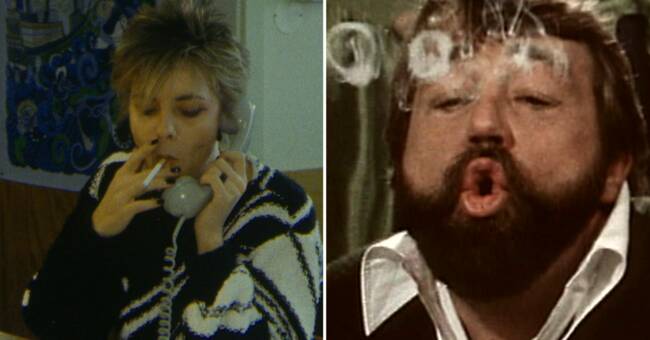On Thursday, New Zealand's Ministry of Health presented a comprehensive bill to severely restrict access to cigarettes.
- It is positive with countries that are at the forefront and that pave the way for other countries, says Josefin Jonsson, unit manager for tobacco prevention at the Swedish Public Health Agency.
The proportion of Swedes who smoke has halved since 2006. Just under seven percent of the population smokes daily.
But in some groups, smoking is still widespread, FHM's statistics show.
- In socio-economically vulnerable groups who are outside the labor market or have a shorter education, smoking is twelve to thirteen percent.
We need to work more with targeted initiatives.
Sweden is not a pioneering country
Hans Gilljam is a professor emeritus at Karolinska Institutet and has researched tobacco prevention for many years.
He is not surprised by the news from New Zealand and believes that if the bill enters into force, it will be unique in the world.
- New Zealand is a country that is at the forefront in terms of tobacco prevention and as far as I know there is no country that has done something similar, he says.
Despite the fact that fewer and fewer people smoke in Sweden, we are not a pioneering country, he says.
- In many countries, we are a low-cost country when it comes to cigarettes.
The tax is raised, but very carefully.
Would probably not go to Sweden
In Sweden, a ban on smoking in public places outdoors and warning pictures on cigarette packets have been introduced in recent years.
But there are some initiatives that Sweden has chosen not to introduce.
For example, neutral cigarette packs, ie where the packs have the same color and the brands are forced to use the same font.
- Several EU countries have introduced this and it is known that it is a successful effort to make tobacco less attractive, she says.
If the Government of New Zealand gets what they want, it means, among other things, that the number of licensed tobacco sellers will be limited to 500 from the current 8,000 and that cigarette packaging will be neutral.
In addition, they want people born in 2008 or later to be banned from buying cigarettes legally.
A ban that is not likely in Sweden.
- If such an intrusive regulation is to be implemented, you need to agree within the EU and there needs to be a political will, says Josefin Jonsson.

